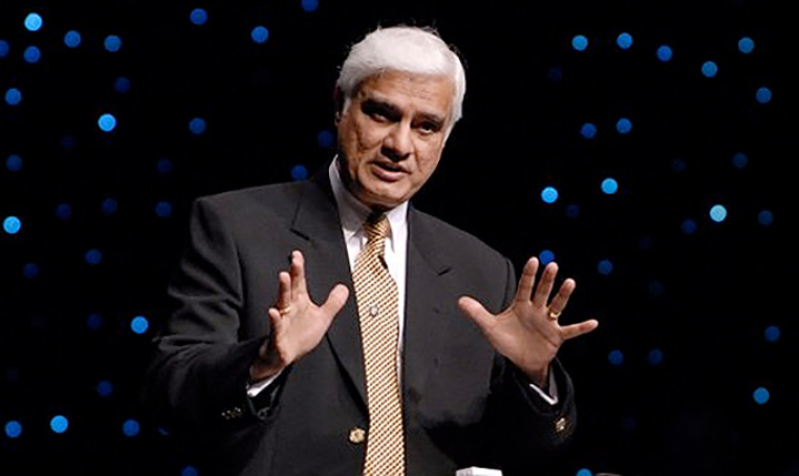
In a recent blog post, Christian apologist and author Ravi Zacharias called President Obama's remarks about Christianity at the National Prayer Breakfast "the most ill-advised and poorly chosen reprimand ever given." Zacharias feels strongly that Obama was not wise to highlight the Crusades in his speech, the very mention of which could add kindling to the hatred that the Islamic State of Iraq and Syria (ISIS) has for Christians. "[I] have never, ever heard such absence of wisdom in a setting such as this," Zacharias wrote.
Barack Obama professes to be a Christian, but does not seem to adhere to certain basic standards of Christian belief. "I'd say, probably, intellectually I've drawn as much from Judaism as any other faith," he said in an interview about his beliefs before he was president - "So, I'm rooted in the Christian tradition. I believe that there are many paths to the same place ... that there is a higher power ... if I live my life as well as I can, that I will be rewarded. I don't presume to have knowledge of what happens after I die."
Obama shared more of his thoughts on religion at this year's National Prayer Breakfast, some of which have received much criticism from prominent Christian leaders. The President, who was raised in a Muslim country during part of his childhood, tried to separate terrorism from Islam - "We have seen violence and terror perpetrated by those who profess to stand up for faith, their faith, professed to stand up for Islam, but, in fact, are betraying it. We see ISIL, a brutal, vicious death cult that, in the name of religion, carries out unspeakable acts of barbarism," he said.
The President then proceeded to tell Christians not to get on a high horse, since heinous crimes like the Crusades and the Inquisition have been committed in the name of Christ as well.
"May I dare suggest that if Christians had been burning Muslims and be-heading them, he would have never dared to go to Saudi Arabia and tell them to get off their high horse," Zacharias wrote in response.
While Obama did quote pieces of the Bible throughout his speech, some would say that the President's message at the prayer breakfast was more centered on protecting Islam than it was on Christ. "The predominant delight in his remarks would be in the Muslim world and the irreligious," says Zacharias - "I cannot recall when I have heard such inappropriate words at so important an occasion, in such a time of crisis."
The Christian apologist believes it was particularly unwise for Obama to bring up the Crusades in light of the current threat of terror in our nation. "Citing the Crusades, [Obama] used the single most inflammatory word he could have with which to feed the insatiable rage of the extremists. That is exactly what they want to hear to feed their lunacy. In the Middle East, history never dies and words carry the weight of revenge," Zacharias says.
Though he believes that the President's speech was inappropriate, Zacharias noticed a silver lining. "In the end, President Obama blundered into the truth ... He said, 'It is sin that leads us to distort reality.' He was right ... There is good news for the President. At least in the Christian message forgiveness is offered for sin. In Islam it isn't. You must earn it," he says - "The world is burning with fear and apprehension. We need a message that will inspire and encourage and redeem."






